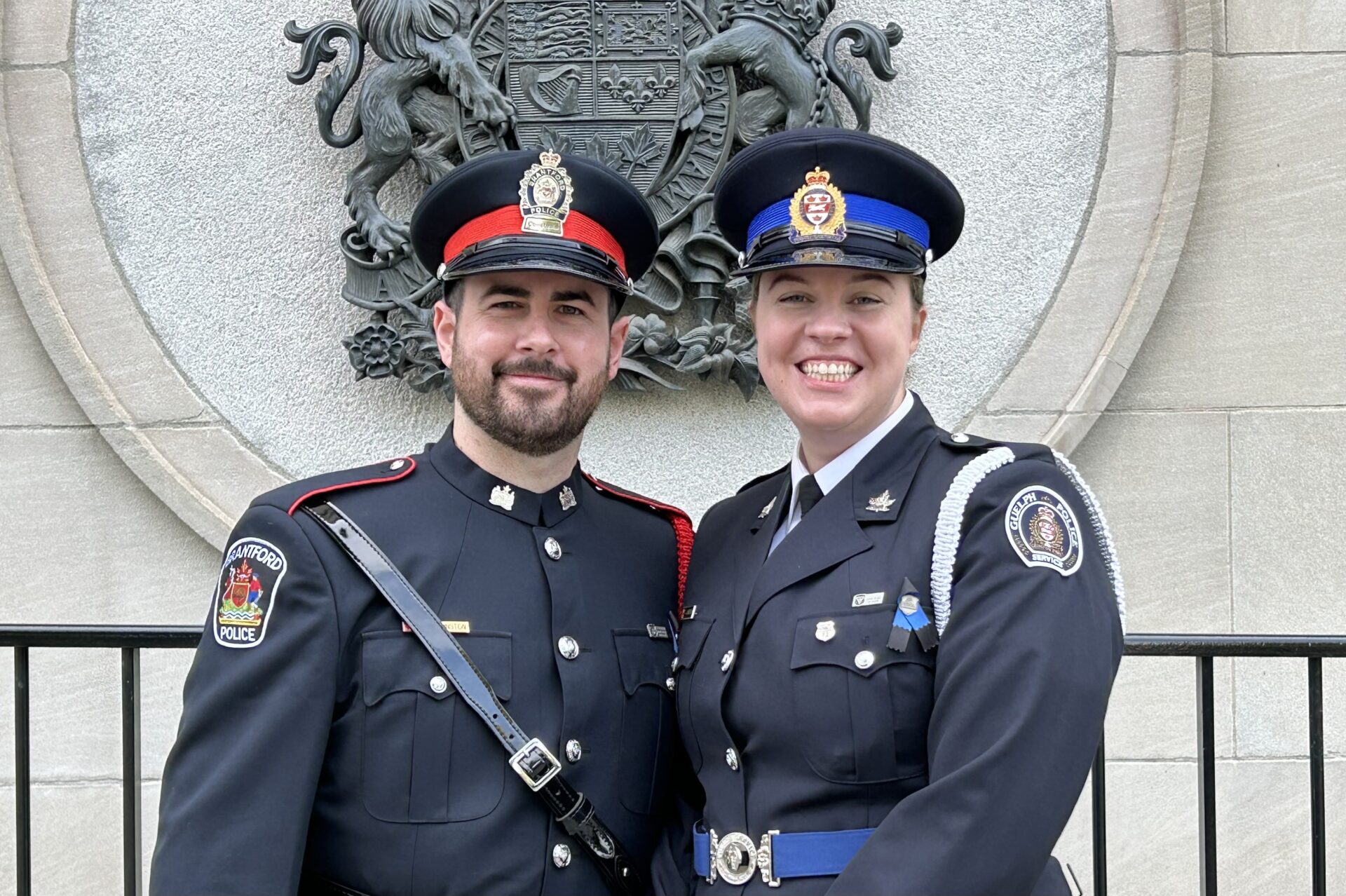Const. Geoff Johnston of the Brantford Police Service was recently announced as one of six global scholarship winners of the Magnet Forensics Scholarship Award.
Johnston is the first Canadian winner of the scholarship since its inception in 2018 and will receive one year of training for the Magnet Axiom software, alongside some of the world’s best digital forensic experts.
Born and raised in Brantford, Johnston grew up in a law enforcement family and always wanted to become a police officer to help his community.
“My whole policing career has been in Branford, I never wanted to go anywhere else,” he said. “I care about the community and I wanted to make a difference here.”
Growing up, Johnston was always interested in the world of technology and the inner workings of computers, so when policing started to diversify throughout the late 2000’s, he took his opportunity.
“There was a big diversification in policing and they needed people with different skills,” said Johnston. “They didn’t just need the tallest person or the biggest person, they needed people with different skills. For one of our members that’s accounting, for some it’s their ability to speak to people, mine is technology and I’m very happy that it’s technology.”
Johnston spent his first seven and a half years in the police force working as front-line patrol before working for three years in the high school resource officer program interacting with students.
“That was awesome,” he said. “It was great to actually get to interact with students and that really allowed me to make connections with these kids and make a huge difference. To this day I still call them my students.”
During the pandemic, Johnston took the opportunity to become a Computer Forensic Examiner and started working in the Child Internet Exploitation unit.
“In the early days of my career, Internet child exploitation and that heavy content was not something that I was prepared to deal with,” he said. “Luckily, when the chance came up two years ago to become a computer forensic examiner, I finally felt like I had seen some things and I had been some places and that I might have the ability to kind of cope with that heavy content and be able to make that difference.”
The pandemic saw many people locked in their homes and on their devices and police across the country saw a rise in internet child exploitation cases.
On a day-to-day basis, Johnston now spends his days in the lab doing examinations on devices, gaining access to them, and pulling the information from them to review and determine what the story was. Deemed as experts by the court, it’s Johnston’s and others’ job to remain impartial.
“You cannot change the evidence,” he said. “You cannot change the scene that you walk into, you’re just there to tell the story, and provide the information.”
Johnston had to hit the ground running with little training and had to learn as he went. Between learning from fellow police officers and doing his own research, he had to find and purchase books and read old manuals from different courses to further his training while working.
“One of the difficulties that I faced when I came in was that I came in in the middle of the pandemic, during the very first lockdown,” he said. “Courses were getting shuttered and having smaller class sizes and the whole digital forensics community in the province and across North America experienced a huge issue with being able to access quality training. Content wasn’t getting updated and then when things started to open back up, they had course size issues and you’ve got massive wait lists.”
With his new scholarship from Magnet Forensics, Johnston is learning how to use the Axiom software that allows agencies to recover, analyze and manage digital evidence from phones, computers, loT devices (nonstandard computing devices that connect wirelessly to a network and have the ability to transmit data) and the cloud.
Since 2018, the Magnet Forensics Scholarship has been awarded to officers in Canada, the U.S., Australia, Ireland, New Zealand, Brazil, and Nigeria, giving them the opportunity to learn more about the software, digital forensics and receive the Magnet Axiom technology in an effort help out their own police force as well as those in neighboring communities that don’t have access to such technology.
As Johnston completes his new education throughout the year, he is looking forward to implementing his new skills to help keep children in the community safe but encourages families to always try to have open communication with their younger family members.
“Have an open line of communication with your kids because if you know what they are up to and you know what they’re doing online, that will help safeguard them,” he said. “But also, if you have that open communication with them, when something does go wrong, they will come to you and ask for your help. When those relationships are in place with those trusted people, they can go to an adult and see somebody in a position of responsibility.”
Kimberly De Jong’s reporting is funded by the Canadian government through its Local Journalism Initiative.The funding allows her to report rural and agricultural stories from Blandford-Blenheim and Brant County. Reach her at kimberly.dejong@brantbeacon.ca.
